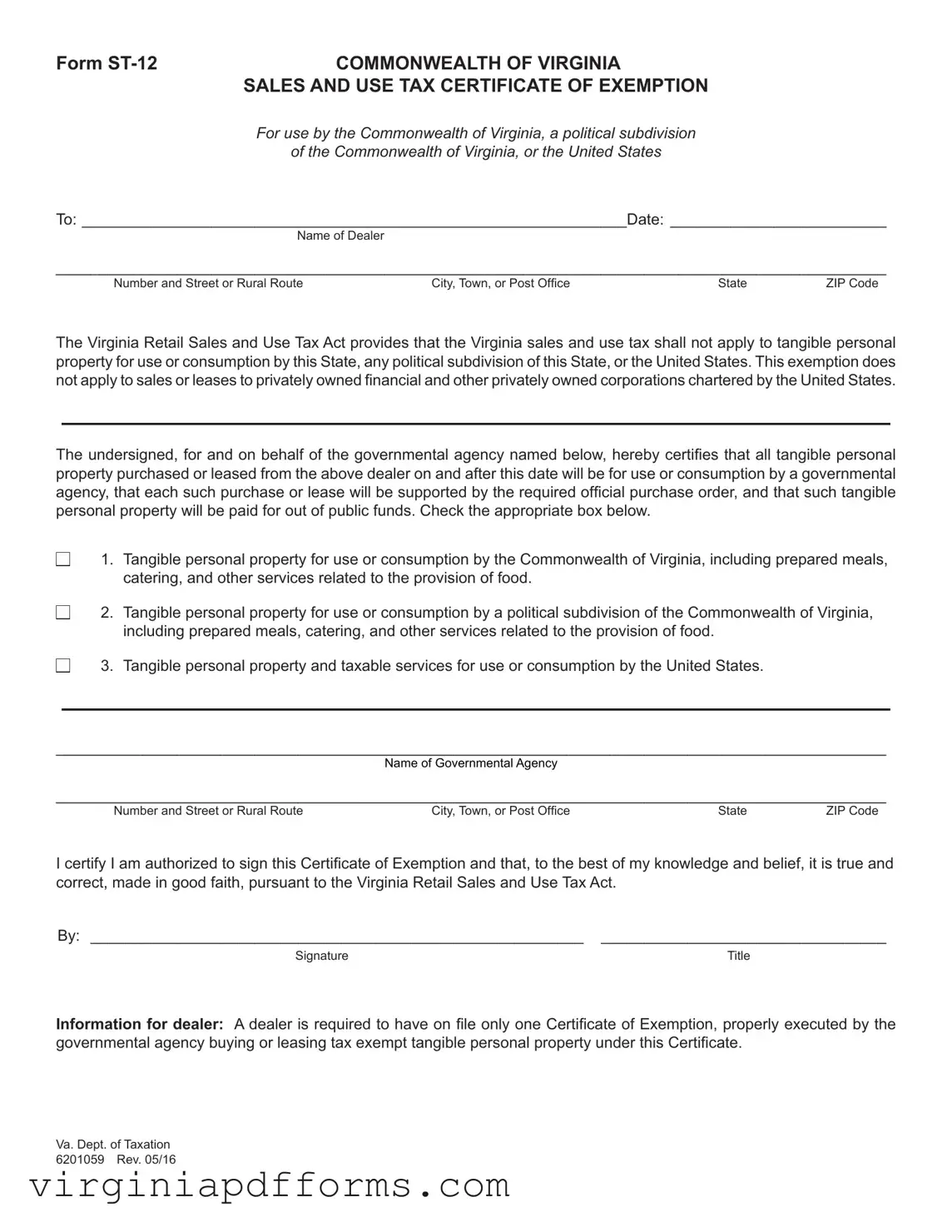Fill in a Valid Virginia Sales Tax Exemption Template
The Virginia Sales Tax Exemption form (FORM ST-12) is a certificate that allows certain governmental entities to purchase tangible personal property without incurring sales tax. This form is specifically designed for use by the Commonwealth of Virginia, its political subdivisions, or the United States. By completing this form, authorized representatives certify that the items purchased will be used for governmental purposes and funded through public resources.
Access My Document Now

Fill in a Valid Virginia Sales Tax Exemption Template
Access My Document Now

Access My Document Now
or
Free Virginia Sales Tax Exemption File
Need this form wrapped up fast?
Finish Virginia Sales Tax Exemption online — edit, save, download without effort.